Directing synchronous and comprehensive implementation
Recently, at the conference summarizing 12 years of implementing Directive No. 124 of the Central Military Commission Standing Committee on strengthening leadership and direction of political education work at units in the new period and 10 years of implementing the Project "Innovation of political education work at units in the new period" (abbreviated as the Project), the delegates attending the conference unanimously assessed: Implementing the directive and project, the Party Committee of Military Region 3 has concretized and issued Resolution No. 99-NQ/DU on strengthening the leadership of Party committees at all levels in political education work at units in the new period; at the same time, issuing directives and plans for implementation to ensure strictness and seriousness.
Every year, in the regular and thematic leadership resolutions on training work, the Party Committee of Military Region 3 directs Party committees at all levels to review and evaluate implementation results, determine policies and solutions for leadership and direction, and incorporate the content of political education work into the regulations, work plans, and action programs of commanders, political commissars, and political officers; thoroughly overcome the manifestation of "contracting out" political education work to political agencies and political cadres.
Colonel Vu Van Hoai, Deputy Chief of Political Affairs of Military Region 3, affirmed: Selected by the Ministry of National Defense as a point of innovation in the content of compiling political education documents determined by the unit itself, the Political Department advised the Party Committee of Military Region 3 to direct and select agencies and units as points of each content of the Project. In which: The Political Department and Division 350 innovated the compilation of political study documents determined by the unit itself; Regiment 8 (Division 395) innovated political teaching with electronic lesson plans; Hai Duong Provincial Military Command researched the topic of officers; Brigade 454 implemented a political and spiritual culture day; Brigade 513 announced political and current affairs, thereby expanding in agencies and units. Leading and directing the work of inspection, evaluating results, taking the results of political education, ideology and discipline compliance are some of the basic criteria to evaluate the quality of party organizations, party members, mass organizations and union members, and consider emulation and annual rewards.
As the main unit with enough troops to perform training tasks and be ready for combat, over the years, the Party Committee and Command of Division 395 have always paid attention to leading, directing and organizing closely and seriously the innovation of military education work for soldiers; considering it an important factor that determines the quality of the unit's mission completion.
Colonel Nguyen Dinh Khiem, Political Commissar of Division 395, said: "In order to implement the Project, the Party Committee, the Division Commander, the Party Committee, the Political Commissar, the Political Officer and the political agency have thoroughly grasped and strictly implemented the directives, resolutions and instructions of the Central Military Commission, the General Department of Politics of the Vietnam People's Army, the Political Department of the Military Region on strengthening the leadership and direction of political education work at the unit in the new period, focusing on making breakthroughs in improving the quality and capacity of the team of political teaching staff and innovating the content and methods of political education. The unit has invested in ensuring good facilities, purchasing equipment for political education work, especially ensuring the projector system and classrooms for soldiers. With the above-mentioned budget and the unit's capital fund, the Division has purchased 36 projectors and built 3 centralized classrooms, thereby contributing to overcoming the shortage of classrooms. Along with that, promoting the role of cadres who are lecturers of the Academy of Politics on internship and practice to foster methods and impart experience to the team of political teaching staff of the unit. Thanks to that, it has created a strong and synchronous change in awareness and responsibility in leadership, direction, management, and organization of political education work at the unit".
Innovation in forms and methods of political education
Learning about the reality of political education work in units of Division 395, we had the opportunity to attend a political education session on the topic: "Current foreign policies and guidelines of our Party and State" taught by Lieutenant Truong Cong Trinh, Political Commissar of Company 11, Battalion 6 (Regiment 8, Division 395) to non-commissioned officers and soldiers (HSQ-CS) who will enlist in 2022. What impressed me the most was that, from a seemingly "dry" and unattractive issue, under the analysis and explanation of the Company Political Commissar, the content was "softened" to become lively, attractive, and engaging for learners; with practical examples, relevant to current events, closely combining presentations with Powerpoint slides to illustrate each issue and each content, the teacher skillfully suggested questions for students to exchange and discuss.
Lieutenant Truong Cong Trinh shared: "The traditional method of "teacher reads - student writes" makes students bored and sleepy. Applying the problem-posing teaching method, dialogue between teachers and students encourages positivity, initiative, and creativity in students' thinking. However, it requires teachers to not only have good pedagogical skills but also have deep and broad knowledge. Before class, I often prepare questions carefully, research documents, update current knowledge to analyze and give specific evidence to students; at the same time, set up pedagogical situations to make the lecture more lively".
In order to make political education work systematic and effective, the Party Committee and the Military Region Command have directed agencies and units to comprehensively innovate all 6 forms of political education at the unit; focus on leading and directing innovation to improve the quality of political learning forms for all subjects, gradually applying information technology to teaching, contributing to improving the quality of political learning in agencies and units. Flexibly apply educational forms suitable for each subject.
In addition, the Military Region actively directed the innovation of the content and form of political awareness testing suitable for each subject; in which, the team of colonel-level officers tested by writing; lieutenant officers and professional soldiers (QNCN) tested in writing; HSQ-CS tested by oral questions combined with multiple choice; compiled an open-ended question system to maximize the dynamism and creativity of the subjects tested. The annual test results were 100% satisfactory, in which, officers and QNCN had over 84.6% good and excellent scores, HSQ-CS had over 76% good and excellent scores; at the same time, linked the results of political awareness testing with emulation and reward evaluation, cadre comments, and annual evaluation of party member quality.
Sharing the results and experiences in political education work at local military agencies, Colonel Ho Sy Quyen, Political Commissar of Hai Duong Provincial Military Command said: "With the characteristics that most cadres, officers, and military personnel when coming to local military agencies have worked at key units, are quite old, many comrades have good motivation to strive; besides, there are also comrades who are past the age of planning and appointment, have limited capacity, and show signs of being afraid of learning and research, leading to low quality and efficiency in performing tasks. Based on the characteristics of the practical situation of local defense and military activities (QP, QSDP) and the subjects of political education, the Party Committee and the Provincial Military Command have directed agencies and units to focus on making breakthroughs in improving the quality of specialized research by officers and informing political and current affairs to officers and soldiers. From there, the situation of copying documents in preparing lectures has been overcome, helping cadres at all levels to have more comprehensive knowledge, more dynamic and creative in advising, implementing and organizing the implementation of the unit's key political tasks".
Effectively apply good models and initiatives to public education
Surveying the reality in the units, we found that one of the highlights considered as a catalyst contributing to improving the quality of political education, helping soldiers to easily remember, understand and absorb the lessons is the effective application of good models and creative ways in political education work such as: The model of "fun to learn", "three specialized groups" of Division 395; the movement "Teach well, learn well, serve well", "1 reduction, 1 increase, 3 practicalities" of the Military School of the Military Region; "4 good units, typical advanced individuals" of Brigade 242; "One good deed a day" of Brigade 273; "Youth branch with no members violating the law and discipline", "Psychological and legal counseling group for soldiers" of Brigade 454; "One law per week" on the internal radio of the Ninh Binh Provincial Military Command... the above models have brought practical results, meeting the need for soldiers to learn about legal knowledge.
Along with that, the effective application of initiatives to support political learning such as: "Synthetic software for political education and awareness testing" of the Nam Dinh City Military Command (Nam Dinh); "Electronic training ground bulletin box" of Forestry Farm 155 (Economic-Defense Group 327); "Training ground rotation" of Brigade 454, "Knowledge ladder" of Brigade 214 has contributed to innovation and improvement of the quality of political education work in agencies and units in the Military Region.
Senior Lieutenant Nguyen Manh Hieu, Assistant to the Officers and Policies (Political Department, Brigade 214) is the author of the “Knowledge Ladder” initiative. He shared: “Applying this initiative helps promote the positivity and proactiveness of learners in the process of political teaching. Through this, officers can grasp the soldiers’ ability to absorb lessons; at the same time, it contributes to increasing the ability to think, synthesize knowledge, and motivation to learn of officers and soldiers. This initiative can be applied to many activities such as: Teaching, reviewing lessons after studying, youth forums, political sports, learning about traditional historical knowledge, directives and resolutions at all levels”…
One of the bright spots and new features in the political education work for the militia and self-defense force of the Hai Phong City Military Command is the application of initiatives and improvements in the political learning model for this force. Colonel Pham Van Vuong, Political Commissar of the Hai Phong City Military Command, said: “After 12 years of implementing Directive 124 and 10 years of implementing the Project, the city's armed forces have had 12 models and initiatives of the militia and self-defense force recognized by Party committees and commanders at all levels, including many models and initiatives of political education with high practical value such as "Model of propaganda and education on sea and island sovereignty" of the armed forces of Thuy Nguyen district; "Software to support the dissemination and education of law" of the armed forces of Duong Kinh district. In the process of practicing teaching, the team of political cadres has combined many methods such as dialogue, presentation, raising issues; enhancing exchanges and discussions with many creative ways, such as: "My squad asks, your squad answers", "Star squad"... thereby ending the phenomenon of "teacher reads - student writes", one-way interaction, helping learners have a comprehensive view, easier to remember, easier to understand, easier to memorize".
Article and photos: NGUYEN THANHSource




![[Photo] Overcoming all difficulties, speeding up construction progress of Hoa Binh Hydropower Plant Expansion Project](https://vstatic.vietnam.vn/vietnam/resource/IMAGE/2025/4/12/bff04b551e98484c84d74c8faa3526e0)


![[Photo] Closing of the 11th Conference of the 13th Central Committee of the Communist Party of Vietnam](https://vstatic.vietnam.vn/vietnam/resource/IMAGE/2025/4/12/114b57fe6e9b4814a5ddfacf6dfe5b7f)


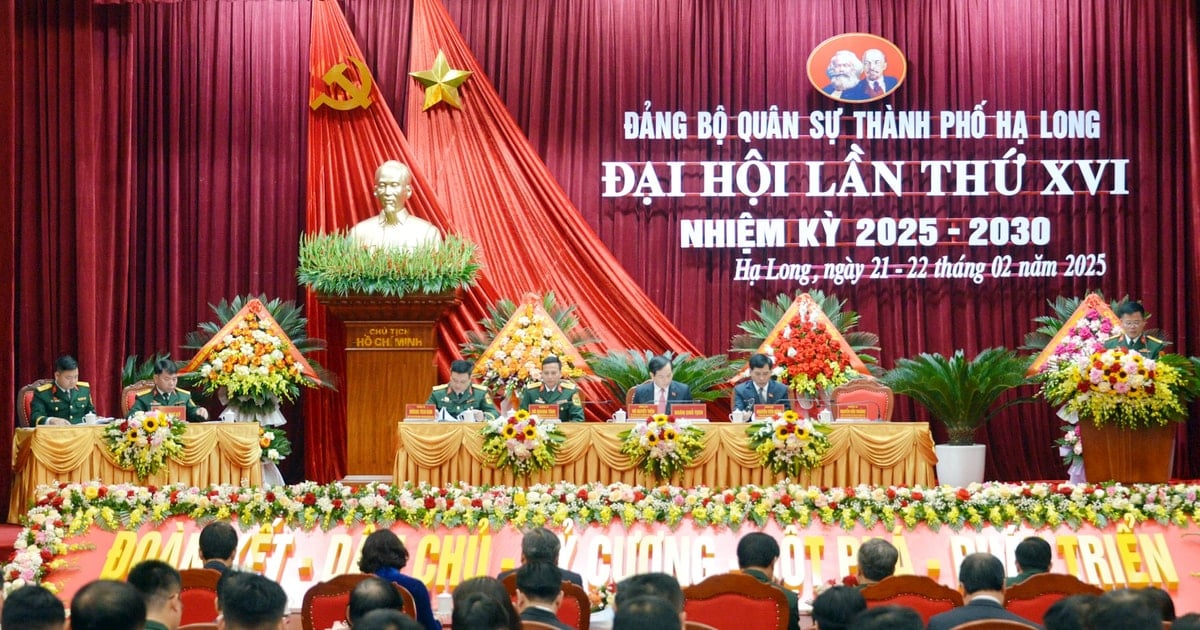
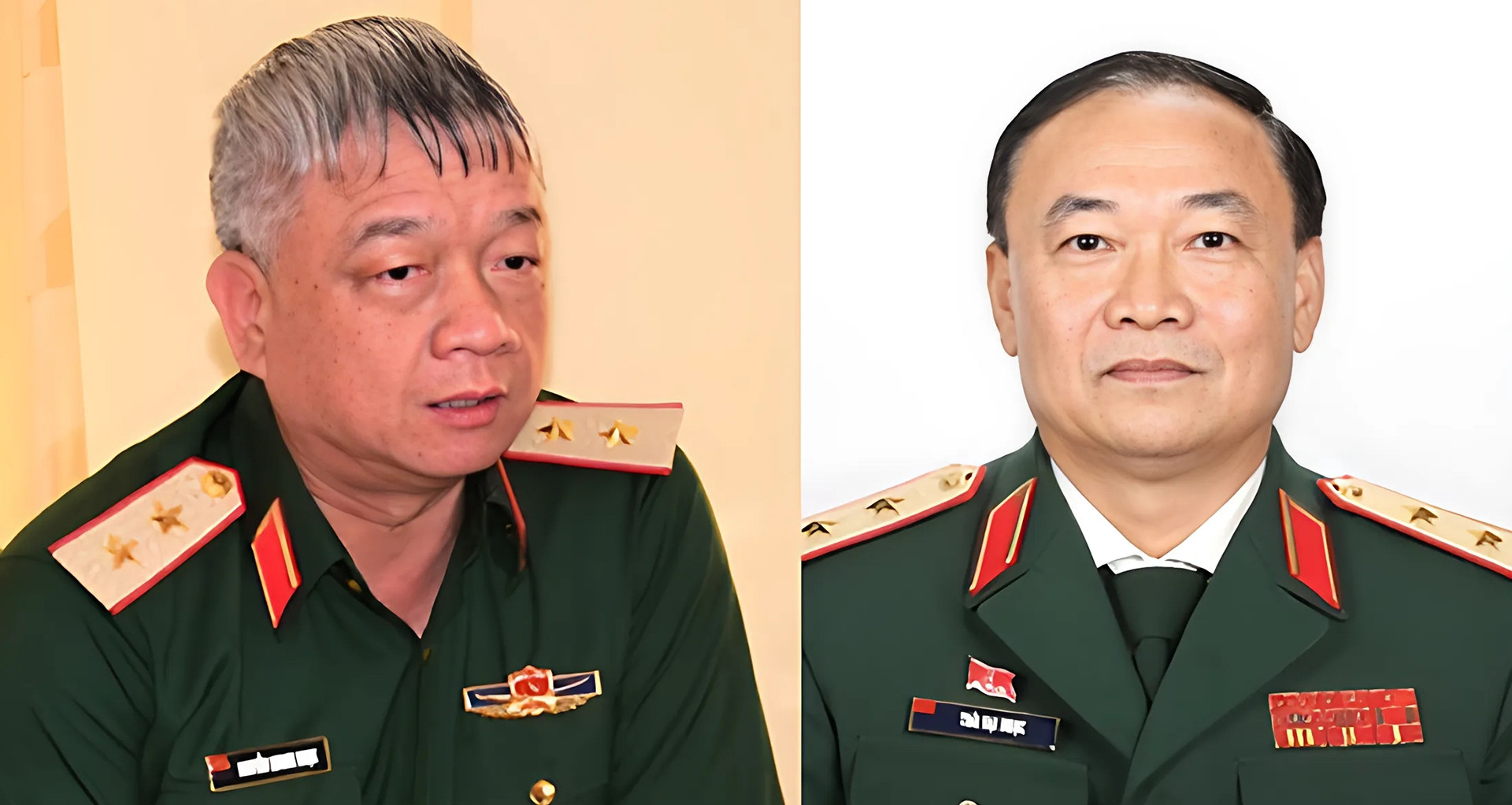

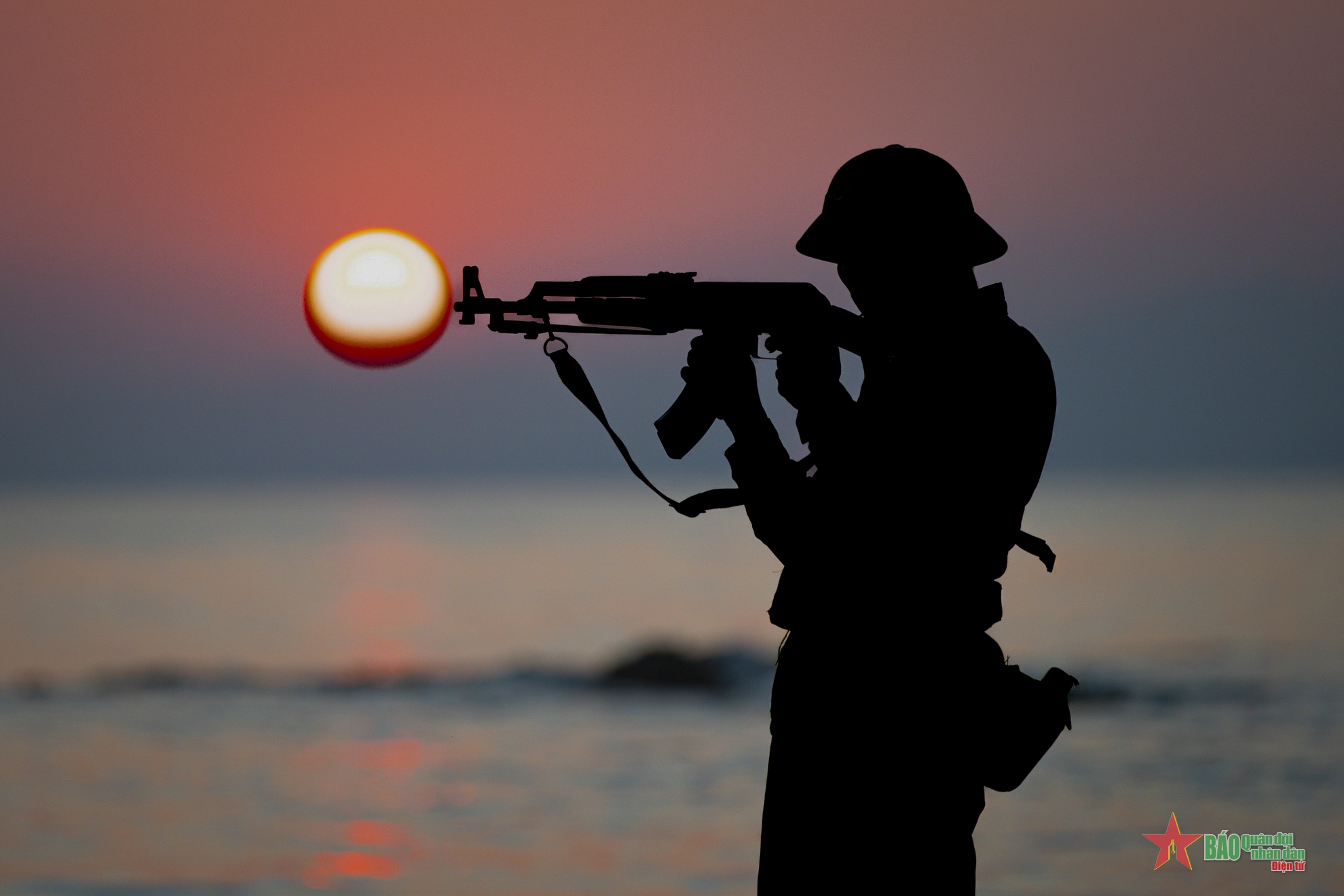
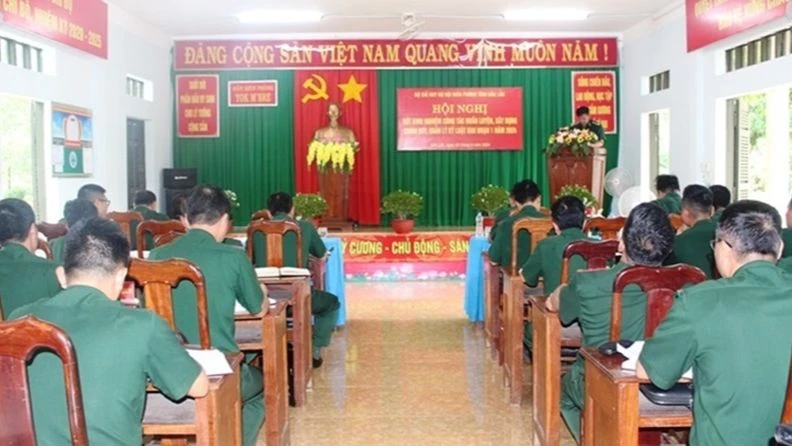

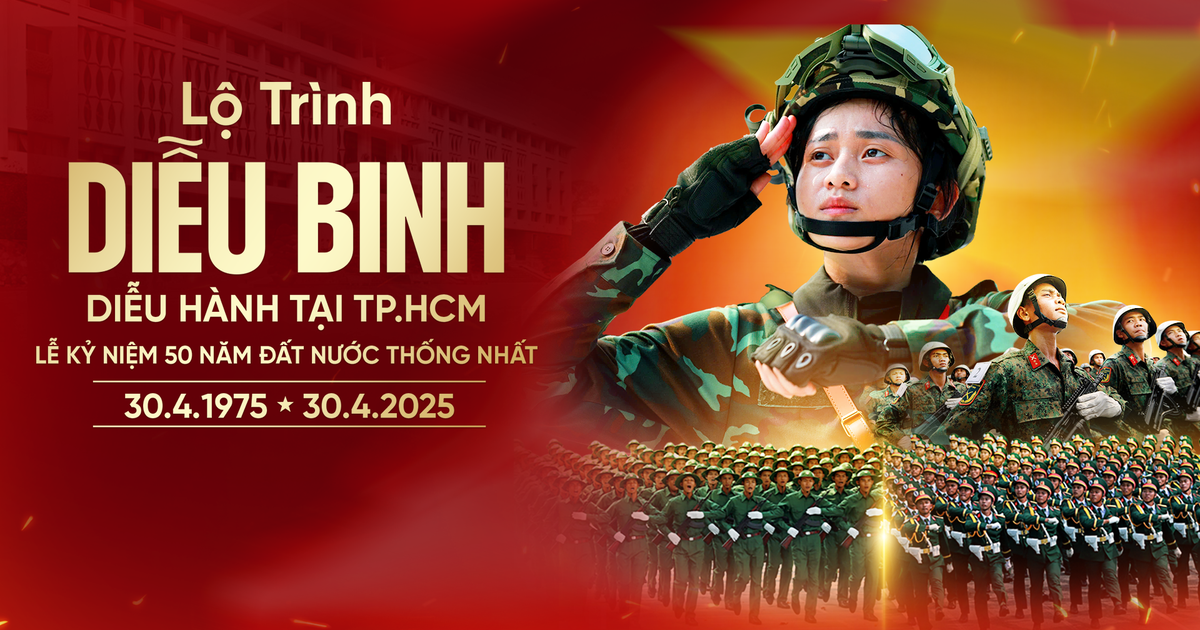
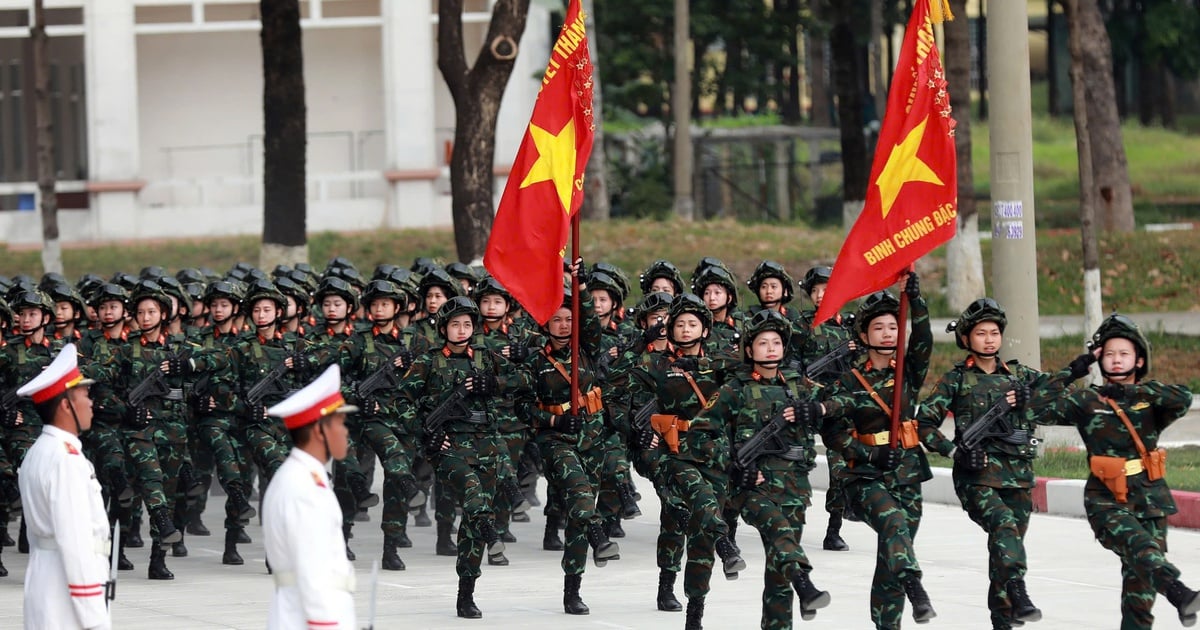
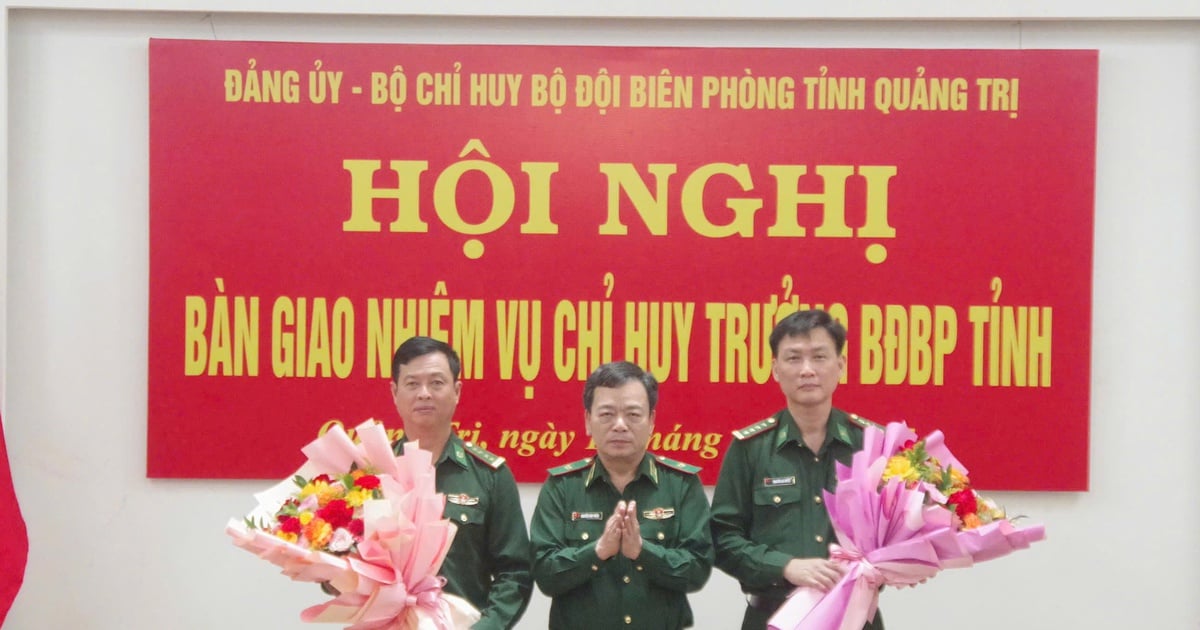
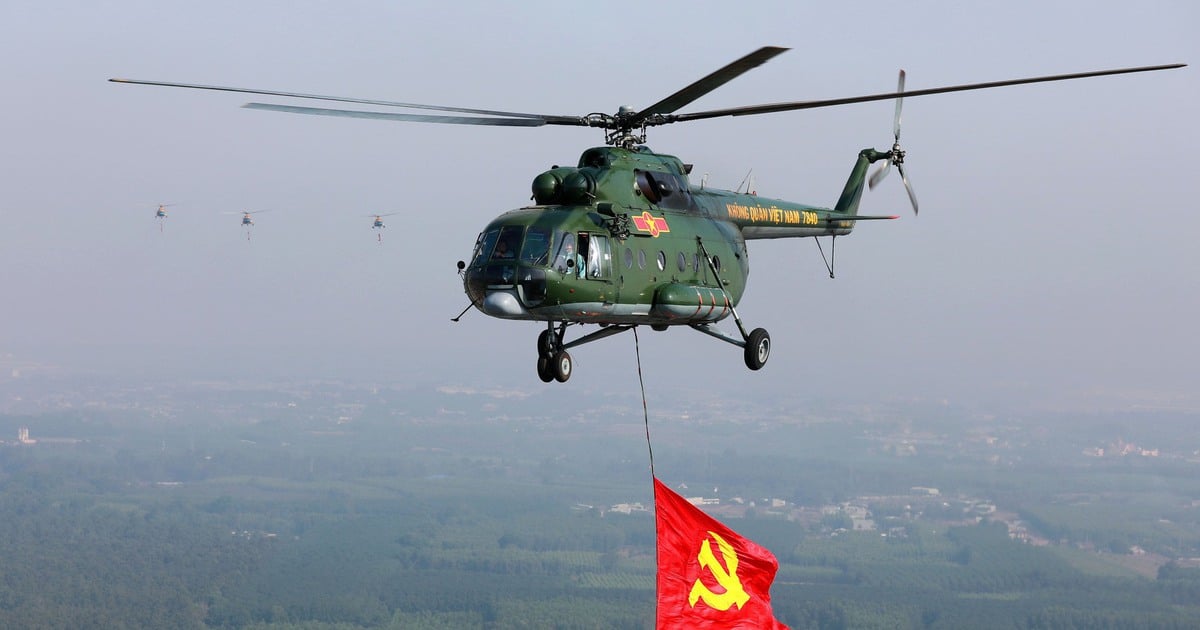
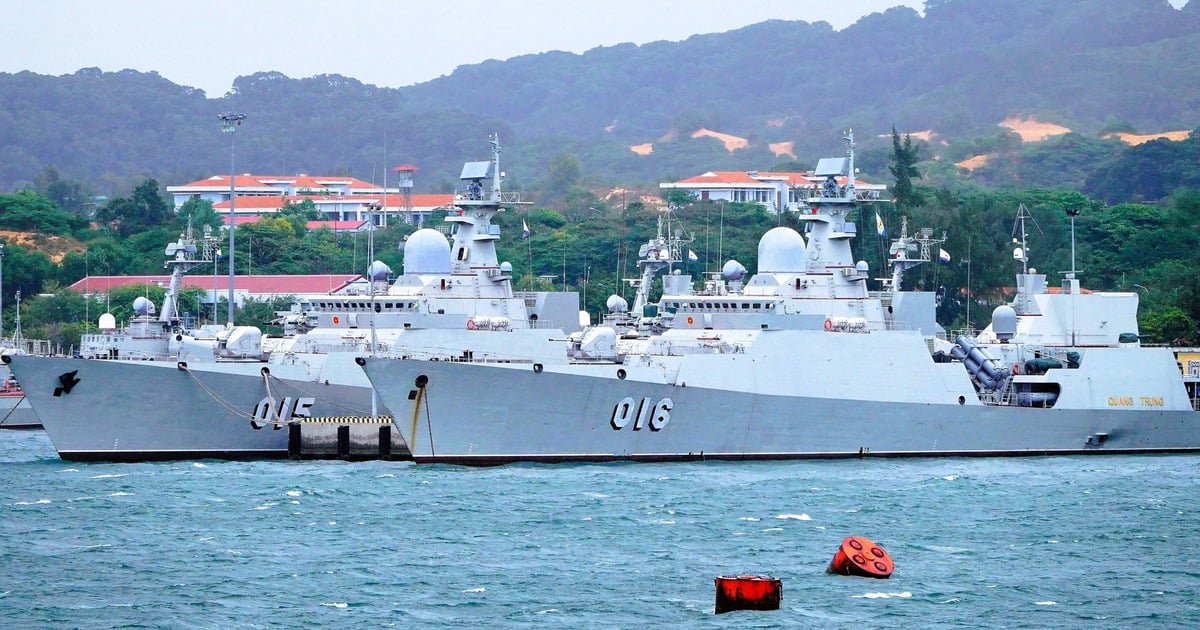
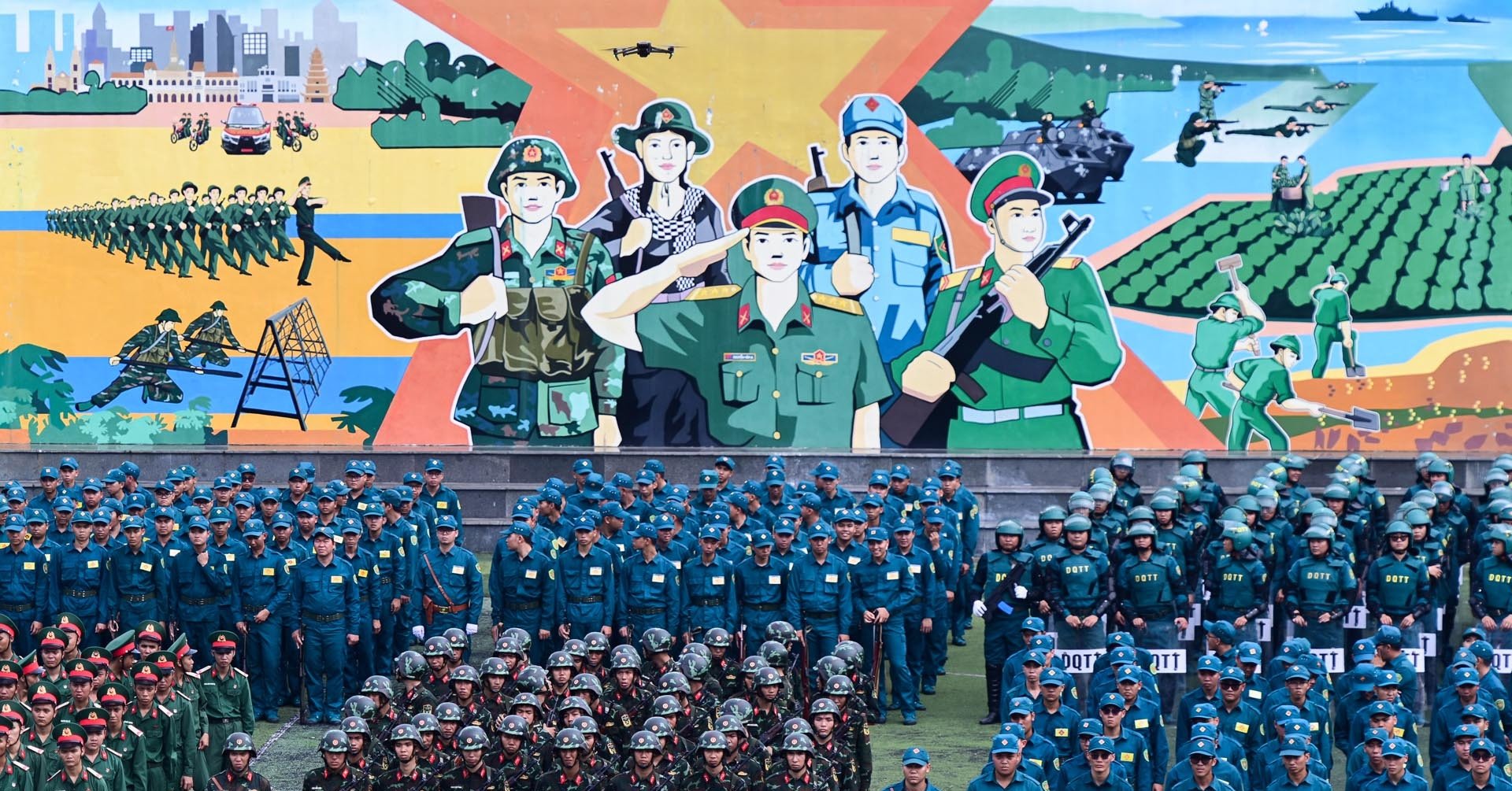



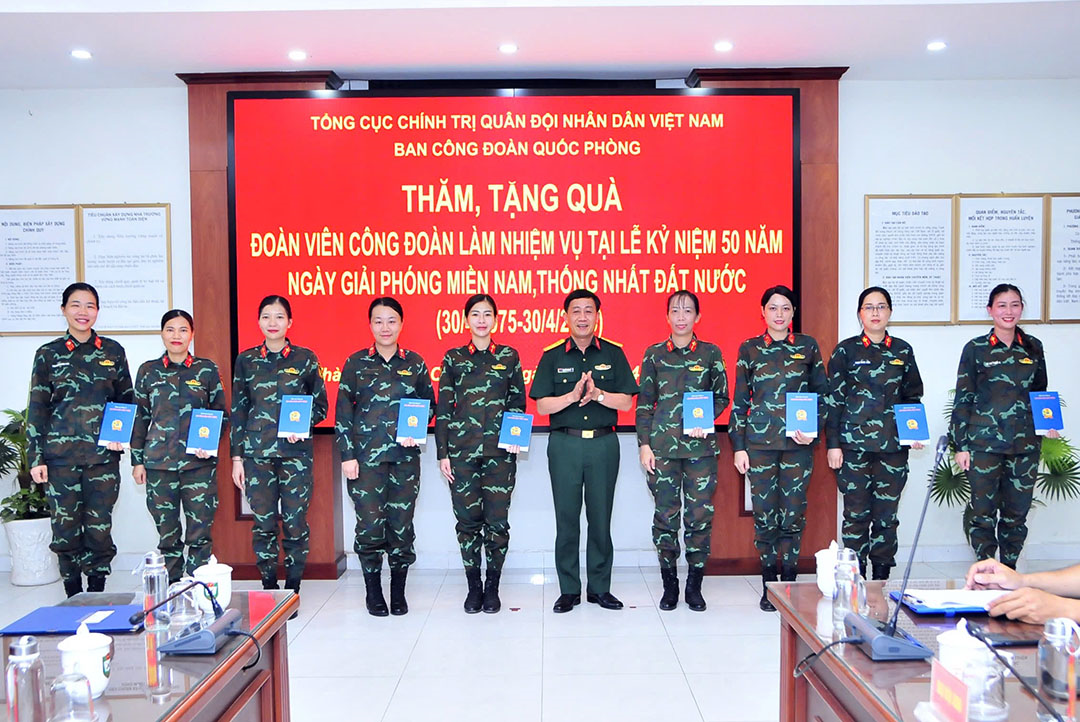
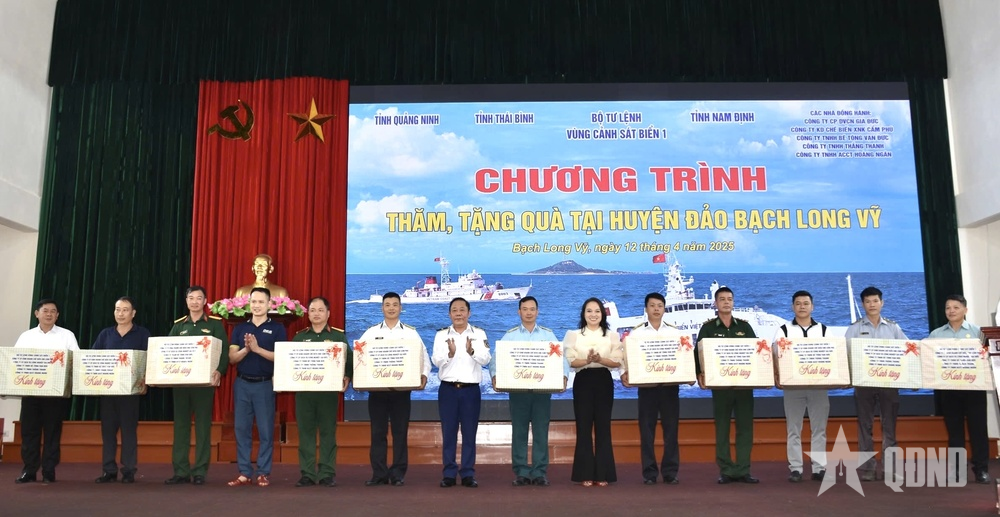
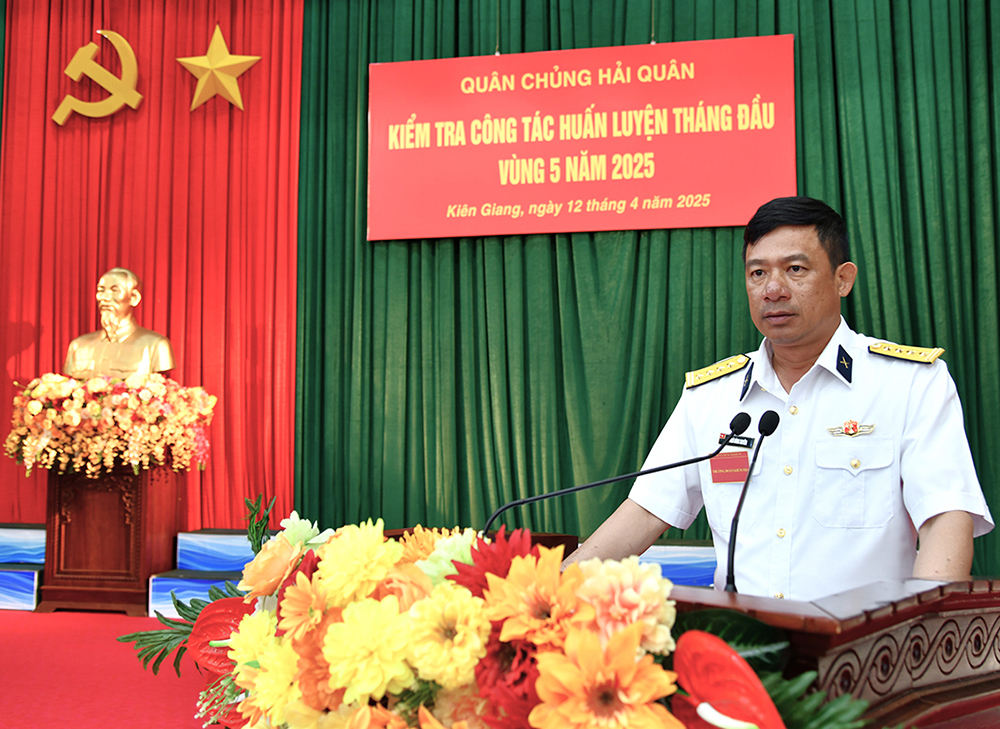

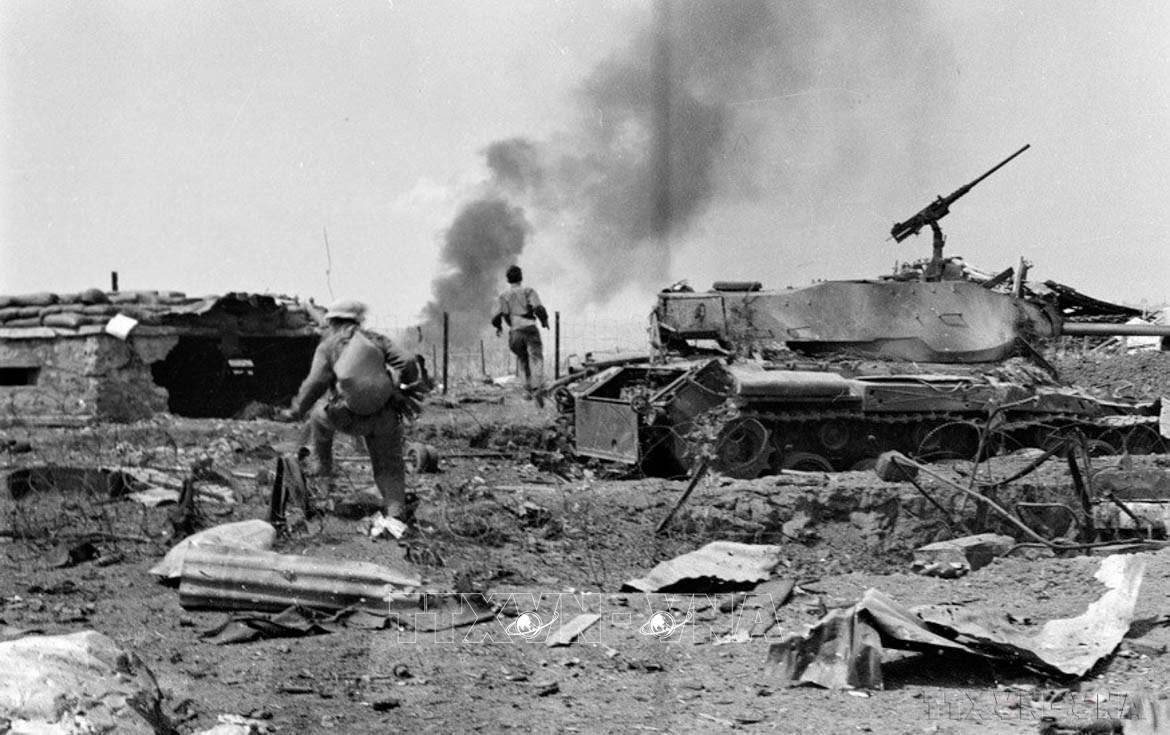












































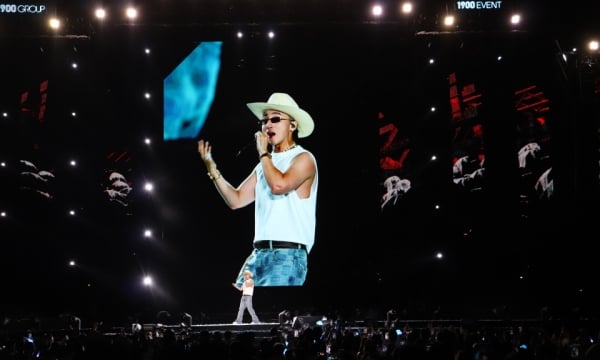


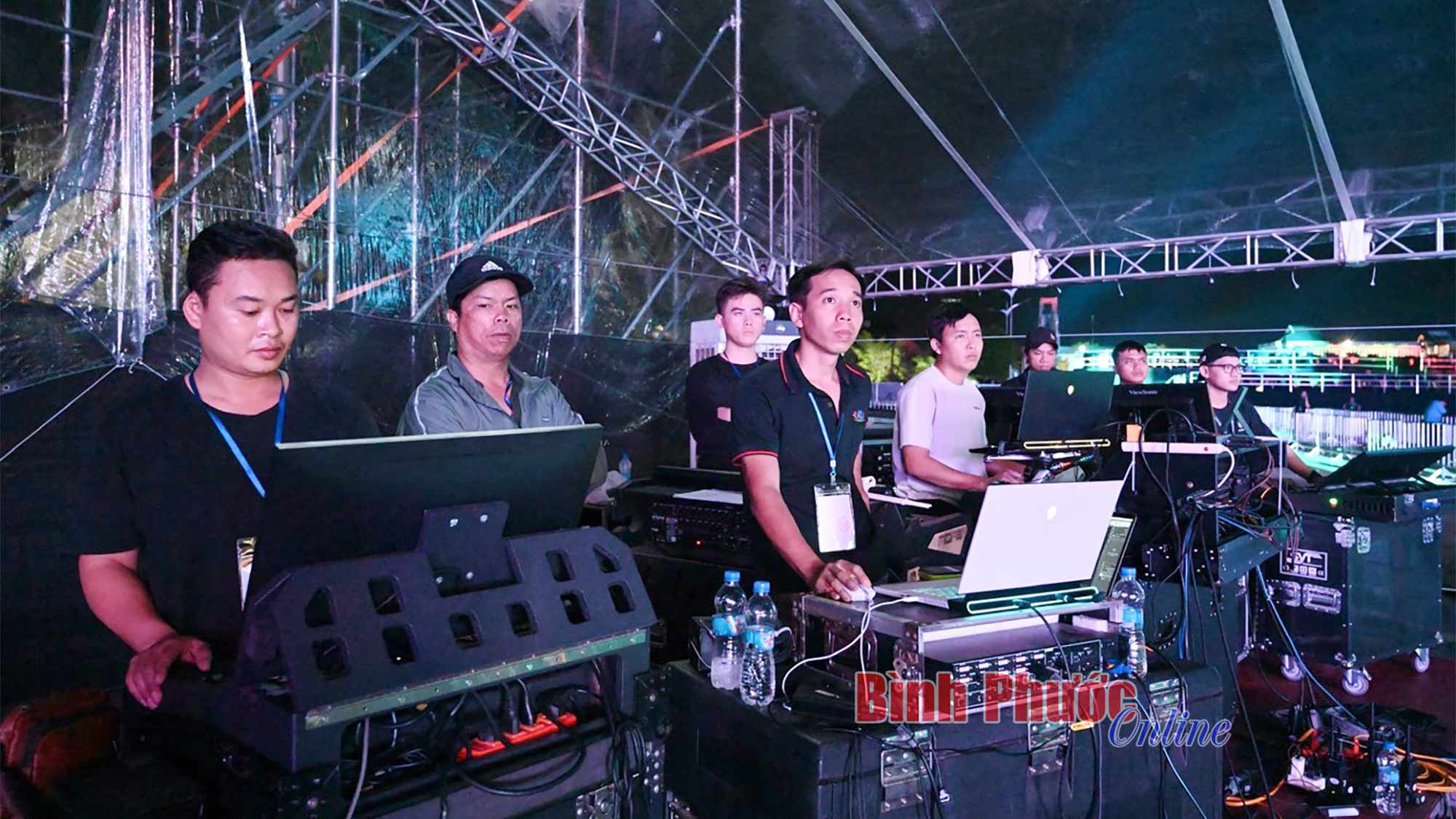

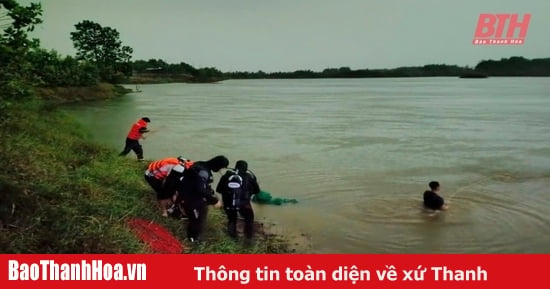













Comment (0)